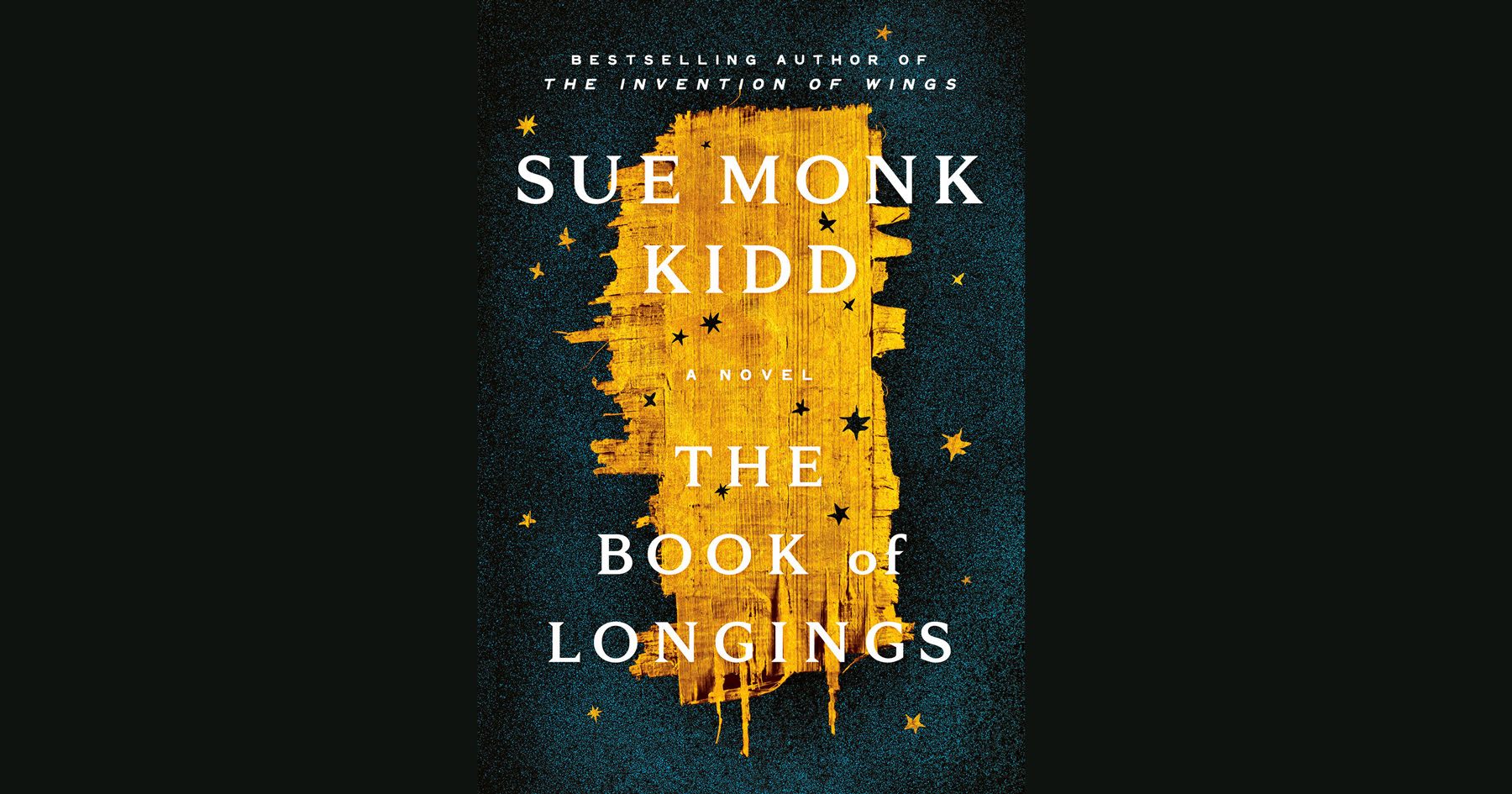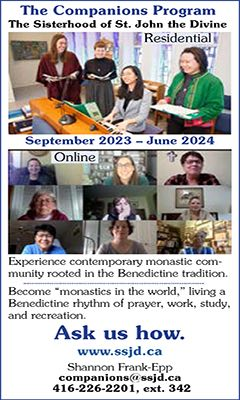Book Review: The Book of Longings by Sue Monk Kidd. New York, Viking, 2020.
“Tell me the stories of Jesus I love to hear” goes the old children’s hymn. We Anglicans are so familiar with Bible stories from the New Testament; we hear them year after year in the Sunday readings of our liturgical seasons — accounts of the anticipation, birth, life, temptation, crucifixion, resurrection and ascension of our Lord.
The title of Kidd’s novel suggests yet another possible addition to the Bible. It is apparent from the outset, however, that this is no ordinary New Testament story. In fact, the main character is not Jesus, but Ana, whose many longings are central to the novel’s theme.
The Book of Longings begins in the early years of the first century. Ana, a talented member of a wealthy family, is fourteen and, according to the customs of the time, is expected to marry the man her father chooses. She adamantly refuses his choice, but the necessary paperwork is completed and the marriage takes place. Ana has already had an unexpected encounter with Jesus. When her “husband” dies, the blossoming love Ana has for Jesus unfolds, Ana’s father relents and her marriage to Jesus occurs. For Jesus this fulfills a duty under first-century Jewish law. The couple relocate to Nazareth and Ana finds it challenging to adapt to a lower economic status. In the novel, Jesus is cast as a stonemason, not a carpenter, and is often away from home seeking work, while Ana longs for him to be present. She is ambivalent about having children and experiences complications in pregnancy. She leans on her aunt for support while living with the mother and brothers of Jesus — Mary, James and Simon.
Ana faces many trials and tribulations, such as the Roman occupation of Israel, but her greatest challenges are coping with Jesus’ increasing role in religious affairs and his connection to John the Baptist, called John the Immerser in the novel. She also longs to have Jesus more present in her life. Ana attempts to protect a former friend and escapes with her aunt to Egypt to avoid capture. During their time there, Ana’s aunt reconnects with her estranged daughter, leading to yet another move by Ana and her aunt, this time to a monastic community. At various times in the novel, we read of Ana’s talents as a scribe and writer, which she puts to good use, recording the stories of women who have been forgotten in old stories in the scriptures of the day.
Ana eventually returns to Jerusalem when Jesus’ life is threatened and the familiar events of Holy Week unfold. At this point the life of Jesus in the novel ends, while Ana’s life and her longings continue as she adjusts to a new life without Jesus.
The Book of Longings contains many reminders of Biblical events and the communities familiar to us in the Bible come alive. Kidd also uses some of the language contained in the Bible. John the Immerser is referred to as “the voice of him that crieth in the wilderness” (Isaiah 40:3); there is a reference to the lilies of the field (Matthew 6:28); and Kidd uses the archaic verb “to know” that we see in Luke’s account of the annunciation, where Mary says, “How shall this be, seeing I know not a man” (Luke 1:34).
The Book of Longings not only contains many of the Biblical accounts we all remember, but it also very carefully tracks the life of Jesus, his increasing role in the religious affairs of his time — something which Ana finds hard to understand, especially after the death of his human father — and the increasingly important role God plays in his life, while cleverly interweaving the fictional elements of Ana and her life, which has much turmoil along with some tender moments.
This novel is a thought-provoking, careful and well-crafted look at a life that might have been, with love, angst and drama added to the stories we usually “love to hear” — an excellent challenge to our familiar Anglican mindset.



